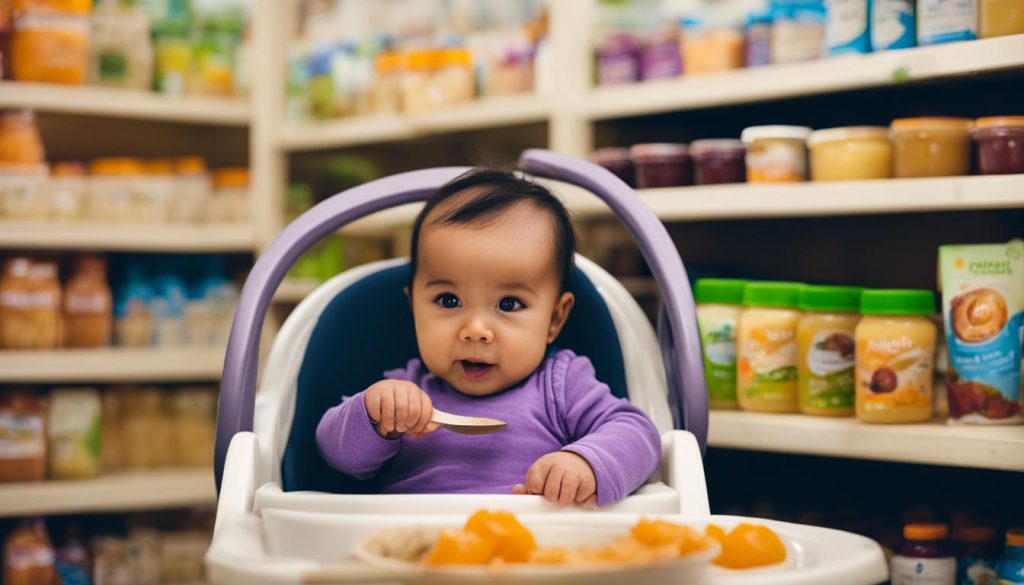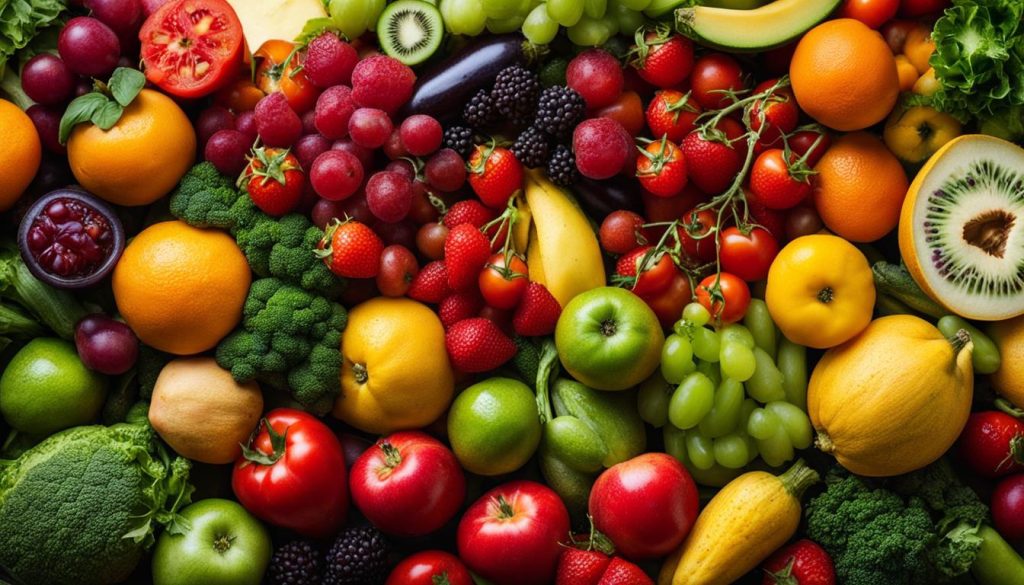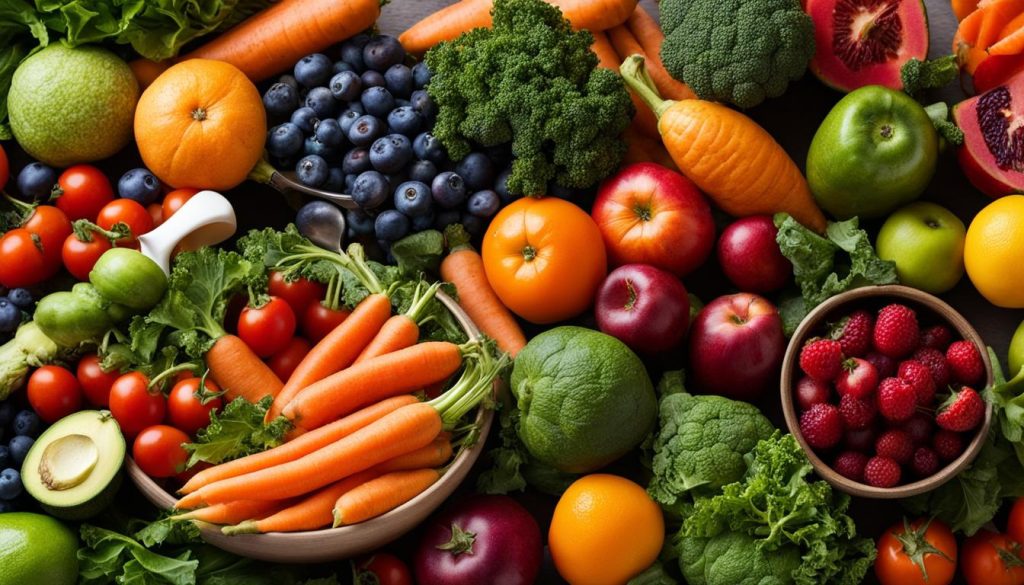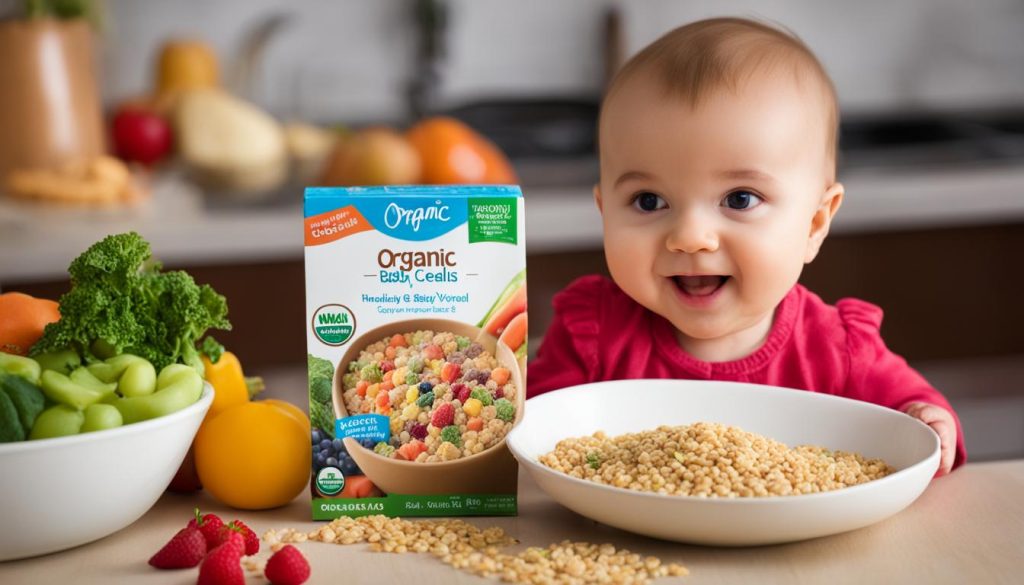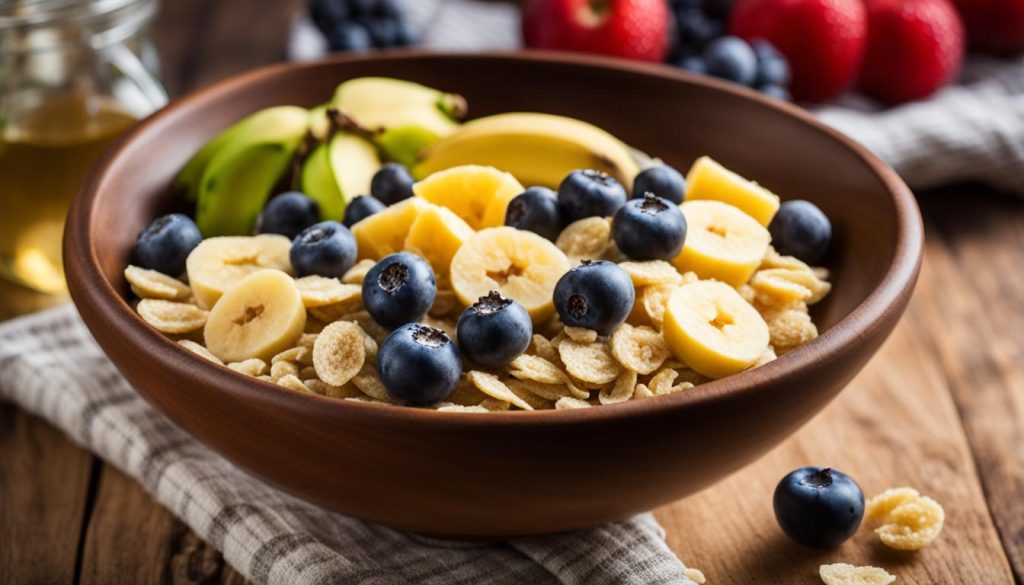Welcome to my article on the safety of Plum Organic Baby Food. As a concerned parent, you want to ensure that the food you feed your little one is safe and of the highest quality. In this article, I will examine Plum Organics’ commitment to safety and address any concerns you may have. Let’s dive in and find out if Plum Organic Baby Food is truly safe for your precious child.
Plum Organics claims to prioritize safety and quality in their products, providing parents with peace of mind. They have even cooperated with the House of Representatives Committee on Oversight and Reform’s baby food review, ensuring transparency and accountability. Plum Organics asserts that their baby food is safe to eat and meets all necessary criteria.
However, it’s important to note that there are currently no federal standards for heavy metals in baby food. Plum Organics acknowledges this and is willing to work with regulators to establish these standards. Rest assured, Plum Organics holds certifications such as USDA Organic and kosher for some of their products, further assuring their safety.
Now that we have an overview of Plum Organics’ stance on safety, let’s delve into the Congressional reports that have raised questions about the heavy metal content in their baby food. Join me in the next section as we explore these findings in detail.
The Congressional Reports on Plum Organics’ Heavy Metal Content
Plum Organics, a well-known baby food brand, has faced scrutiny in recent years regarding the heavy metal content in their products. Two Congressional reports, released in February 2021 and September 2021, shed light on these concerns and raised questions about the safety of Plum Organics’ baby foods.
The first report revealed that Plum Organics refused to submit their internal standards or actual test results but maintained that their finished products met the necessary criteria. However, a separate report from Healthy Babies Bright Futures found that Plum Organics’ Just Sweet Potato Organic Baby Food exceeded the acceptable limits for lead.
In the second report, Plum Organics provided test results and internal documents that showed their Super Puffs rice-based products exceeded the maximum limits for arsenic, lead, and cadmium. Although Plum Organics insists that their products are within acceptable levels based on independent authorities, these findings have raised concerns among consumers and healthcare professionals.
To provide a comprehensive understanding of the issue, the following table summarizes the heavy metal content found in Plum Organics baby foods:
| Product | Arsenic (ppb) | Lead (ppb) | Cadmium (ppb) |
|---|---|---|---|
| Just Sweet Potato Organic Baby Food | Exceeded limit | Acceptable | Acceptable |
| Super Puffs Rice-Based Products | Exceeded limit | Exceeded limit | Exceeded limit |
It is important for parents to be aware of these findings and make informed decisions when choosing baby foods for their little ones. Consultation with healthcare professionals can provide further guidance on suitable alternatives and potential health risks associated with these products.
Heavy Metals in Plum Organics Baby Foods
When it comes to the safety of our little ones, the quality and ingredients of baby food are of utmost importance. Plum Organics, a popular brand known for its organic offerings, has recently come under scrutiny due to concerns about heavy metal content in their products. Test results provided by Plum Organics to the Congressional Subcommittee revealed that some of their baby foods contained elevated levels of heavy metals such as arsenic, lead, and cadmium. These levels exceeded the maximum allowable limits set by the FDA for food, raising concerns about the safety of Plum Organics baby foods.
Plum Organics’ Super Puffs rice-based products, including flavors like apple spinach, mango sweet potato, blueberry purple sweet potato, and strawberry beet, were found to have high levels of heavy metals. Additionally, some of Plum Organics’ Mighty Morning Bars and Mighty Sticks also tested positive for lead. These findings emphasize the need for thorough testing and stricter regulations to ensure the safety of baby foods.
As parents, it’s important to be aware of these findings and consider the potential risks when choosing baby foods. While organic options like Plum Organics may provide a higher level of assurance in terms of reduced exposure to pesticides and potentially harmful additives, the presence of heavy metals is a significant concern. To make informed decisions, it is crucial to carefully review the nutritional content, ingredient list, and test results of baby food brands. Consulting with healthcare professionals can also provide guidance and support in choosing safe and healthy options for your baby.
| Plum Organics Baby Foods | Heavy Metal Content |
|---|---|
| Super Puffs (Flavors: apple spinach, mango sweet potato, blueberry purple sweet potato, strawberry beet) | Elevated levels of arsenic, lead, and cadmium |
| Mighty Morning Bars | Tested positive for lead |
| Mighty Sticks | Tested positive for lead |
In conclusion, while Plum Organics has positioned itself as a trusted brand prioritizing safety and quality, the presence of heavy metals in their baby foods raises concerns about their safety. It is essential for parents to stay informed, review test results, and consider alternatives that prioritize the health and well-being of their little ones.
Differences Between Organic and Conventional Baby Foods
When it comes to choosing baby food for your little one, you may have noticed that there are options labeled as organic and conventional. Understanding the differences between these two types of baby foods is essential in making an informed decision. Here, I will explore the disparities in nutritional content and ingredients in organic and conventional baby foods, helping you choose the best option for your baby’s health.
Nutritional Content Comparison
One of the significant differences between organic and conventional baby foods lies in their nutritional content. Organic baby foods tend to have higher levels of essential nutrients, such as vitamins, minerals, and antioxidants. This is because organic farming practices prioritize soil health, which leads to better nutrient absorption in crops. Moreover, organic baby foods often have reduced levels of potentially harmful additives, such as artificial preservatives, flavors, and colors.
On the other hand, conventional baby foods may contain ingredients that have been exposed to pesticides, hormones, and antibiotics. While these substances are regulated and deemed safe in small amounts, some parents prefer to minimize their baby’s exposure to them due to potential long-term health effects. It is worth noting that the nutritional differences between organic and conventional baby foods may vary depending on the specific brand and product.
Ingredient List Variations
Another aspect to consider when comparing organic and conventional baby foods is the ingredient list. Organic baby foods are made from ingredients grown without the use of genetically modified organisms (GMOs) and synthetic pesticides. They also do not contain artificial ingredients or added sugars. This ensures that your baby is consuming pure, natural ingredients without any unnecessary additives.
In contrast, conventional baby foods may include GMO ingredients and synthetic pesticides, which have raised concerns about their potential impact on human health. Additionally, some conventional baby foods may contain added sugars and artificial ingredients to enhance taste and shelf life. These additives can contribute to less healthy eating habits and potentially negative health outcomes.
| Organic Baby Food | Conventional Baby Food | |
|---|---|---|
| Nutritional Content | Higher levels of essential nutrients | May contain pesticides and hormones |
| Ingredients | Grown without GMOs and synthetic pesticides | May include GMO ingredients and synthetic pesticides |
| Additional Additives | No artificial ingredients or added sugars | May contain artificial ingredients and added sugars |
Table: Nutritional and Ingredient Differences Between Organic and Conventional Baby Foods
When it comes to choosing between organic and conventional baby foods, it ultimately depends on your personal preferences and values. While organic baby foods may offer certain advantages in terms of nutritional content and ingredient quality, they may also be more expensive. On the other hand, conventional baby foods may be more affordable but may contain potentially harmful additives and pesticide residues.
By carefully reviewing the nutritional content and ingredient list of baby food products, you can make an informed choice that aligns with your desired level of quality and safety for your little one.
Tips for Parents when Choosing Baby Foods
When it comes to choosing baby foods, there are several important factors that parents should consider. From reviewing labels to understanding stages of baby food, making informed choices can contribute to your child’s health and well-being. Here are some helpful tips to keep in mind:
- Review labels: Take the time to carefully read the labels of baby food products. Look for organic certifications, which can provide assurance that the product meets certain standards. Additionally, check the ingredient list for any potential allergens or additives that you may want to avoid.
- Understand stages: Baby foods are typically categorized into different stages, each designed for specific age groups and developmental milestones. Consult with your pediatrician to determine when your baby is ready to progress through the stages and introduce new foods.
- Introduce variety: Offering a wide range of flavors and textures early on can help develop your baby’s palate and promote healthy eating habits. Introducing variety at an early age may also reduce the likelihood of picky eating tendencies later in life.
- Watch for signs of acceptance: It is not uncommon for babies to initially reject certain foods. However, persistence is key. If a particular food doesn’t cause any adverse reactions, continue offering it to your baby over time. It may take a few tries before they develop a taste for it.
- Consider homemade options: If you have the time and resources, making your own baby food can be a rewarding option. It allows you to have full control over the ingredients and ensures that you are providing your baby with fresh, nutritious meals. Just be sure to follow proper food safety guidelines when preparing and storing homemade baby food.
- Stay informed: Keep yourself updated on the latest research, recommendations, and recalls related to baby food safety. This will help you stay informed and make educated decisions regarding the products you choose for your little one.
By following these tips, parents can make more informed choices when it comes to selecting baby foods. Prioritizing your child’s nutrition and safety is crucial, and these considerations can help guide you in making the best decisions for your little one.
Conclusion
In conclusion, it is essential for parents to carefully consider the safety of the baby foods they choose for their little ones. While Plum Organics has emphasized their commitment to safety and quality, the Congressional reports on heavy metal content raise valid concerns. The presence of high levels of arsenic, lead, and cadmium in some of Plum Organics’ products is alarming, as these heavy metals exceed the maximum allowable limits set by the FDA.
When selecting baby foods, it is crucial to review labels and opt for organic options that offer reduced exposure to pesticides and potentially harmful additives. Understanding the different stages of baby food and introducing a variety of flavors and textures can help develop healthy eating habits. Parents should also be vigilant for signs of acceptance and seek homemade options when possible to reduce the risk of heavy metal exposure.
Lastly, staying informed about the latest research, recommendations, and recalls related to baby food safety is key in making informed decisions for your child’s health and well-being. Consulting with healthcare professionals can provide further guidance and assurance. Ultimately, parents have the responsibility to prioritize the nutrition and safety of their babies, and careful consideration should be given when choosing baby foods.
FAQ
Is Plum Organic baby food safe for my baby?
Plum Organics states that their products are safe to eat and meet all necessary criteria. However, there have been reports of heavy metal content in some of their baby foods, raising concerns about their safety. It is important to consider these findings and make informed decisions for your baby’s health.
What do the Congressional reports say about Plum Organics’ baby food?
The Congressional reports highlight that Plum Organics’ baby food products, particularly their Super Puffs rice-based products, exceeded the maximum allowable limits for heavy metals such as arsenic, lead, and cadmium. Plum Organics maintains that their products are within acceptable levels based on independent authorities, but the findings raise concerns about their safety.
Are there heavy metals in Plum Organics baby foods?
Yes, according to the Congressional reports, Plum Organics’ baby foods have tested positive for high levels of heavy metals such as arsenic, lead, and cadmium, exceeding the maximum allowable limits set by the FDA for food. These findings raise concerns about the safety of their products.
How does Plum Organics compare to other baby food brands?
Plum Organics is not the only baby food brand mentioned in the Congressional reports. Other popular brands such as Nurture (HappyBABY), Beech-Nut, Hain Celestial Group (Earth’s Best Organic), Gerber, Walmart (Parent’s Choice), and Sprout Foods have also been included. These reports highlight the need for stricter measures and testing of all baby food brands to ensure the safety of infants.
What should parents consider when choosing baby foods?
When choosing baby foods, parents should consider factors such as reviewing labels for organic certifications, checking ingredient lists for potential allergens or additives, understanding the different stages of baby food for specific age groups, introducing variety in flavors and textures, watching for signs of acceptance in babies, considering homemade options for full control over ingredients, and staying informed on the latest research and recommendations related to baby food safety.

